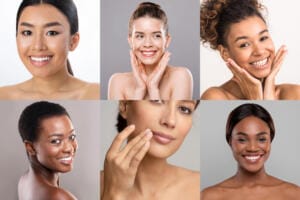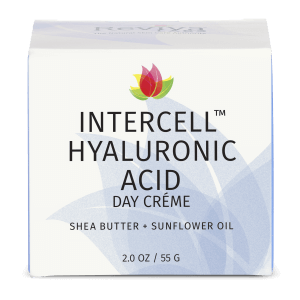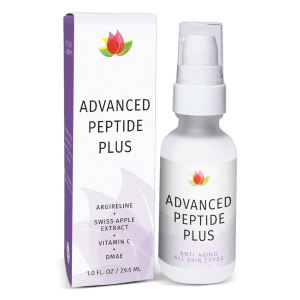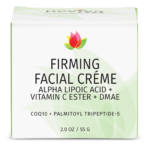Reviva Labs, Skin Care
The Truth About Anti-Aging Creams: Do They Really Work?
Aging is a natural process that everyone experiences, but the quest for youthful skin has led to the booming industry of anti-aging products. Among these, anti-aging creams are the most popular. They promise to reduce the appearance of fine lines and wrinkles, enhance skin elasticity, and give you a more youthful appearance. But do these creams truly deliver on their promises?
Anti-aging creams are often seen as a magic solution, but the reality is more complex. Scientific evidence does support the efficacy of certain ingredients found in these products. However, the effectiveness can vary based on individual skin types and the specific formulations used. Understanding when to start using these creams and which ingredients to look for can help you make an informed decision about incorporating them into your skincare routine.
The Science Behind Aging Skin
Skin aging is a complex process influenced by intrinsic and extrinsic factors. Intrinsic aging is genetically determined and occurs naturally over time, while extrinsic aging is caused by environmental factors such as UV exposure, pollution, and lifestyle choices. Together, these factors lead to the visible signs of aging: wrinkles, fine lines, loss of elasticity, and uneven skin tone.
When Should You Start Using Anti-Aging Creams?
There isn’t a definitive age at which you should begin using anti-aging creams, as it largely depends on your skin type, lifestyle, and genetic factors. However, most dermatologists recommend starting in your late 20s to early 30s. This is when the first signs of aging, such as fine lines and slight loss of skin elasticity, typically begin to appear.
Preventive care is crucial. Starting early can help slow the progression of aging signs. It is much easier to prevent the formation of deep wrinkles than to treat them once they have formed. Even if you’re in your mid-30s or older and have not yet started, it’s never too late to benefit from a well-formulated anti-aging cream. Consistency and proper application are key to seeing results over time.
Key Ingredients That Make a Difference
The effectiveness of anti-aging creams largely depends on their ingredients. Some have been extensively studied and proven to have anti-aging benefits. Here are some of the most effective ones:
- Retinoids (Vitamin A Derivatives): Retinoids, including retinol, tretinoin, and adapalene, are among the most researched anti-aging ingredients. They promote cell turnover, stimulate collagen production, and help fade age spots. Retinoids can improve skin texture and tone, making them a cornerstone of many anti-aging routines.
- Peptides: Peptides are short chains of amino acids that serve as building blocks for proteins like collagen and elastin in the skin. They help signal the skin to produce more collagen, which can lead to firmer, more youthful-looking skin. Some studies suggest that peptide-containing products can improve skin elasticity and reduce the depth of wrinkles over time.
- Hyaluronic Acid: Hyaluronic acid is a powerful humectant that can hold up to 1,000 times its weight in water. It helps keep the skin hydrated, plump, and smooth, reducing the appearance of fine lines and wrinkles. It is particularly effective when used in combination with other anti-aging ingredients.
- Vitamin C: Vitamin C is a potent antioxidant that helps protect the skin from free radical damage caused by UV exposure and pollution. It also aids in collagen production and can help fade hyperpigmentation and age spots, leading to a more even skin tone and a brighter complexion.
- Alpha Hydroxy Acids (AHAs): AHAs, such as glycolic acid and lactic acid, exfoliate the skin’s surface, removing dead skin cells and promoting cell turnover. This can improve skin texture, tone, and clarity. AHAs can also help increase the penetration of other anti-aging ingredients.
- Niacinamide: Also known as Vitamin B3, niacinamide offers multiple skin benefits. It improves the skin’s barrier function, enhances elasticity, evens out skin tone, and diminishes dullness. Niacinamide is also known for its anti-inflammatory properties, making it suitable for sensitive skin.
How to Maximize the Benefits of Anti-Aging Creams
To get the most out of your anti-aging cream, it’s important to use it correctly. Here are some tips to ensure you’re using your product effectively:
- Patch Test First: Before applying a new product to your face, do a patch test on a small area of your skin to check for any adverse reactions.
- Follow Directions: Use the product as directed on the label. Some ingredients, like retinoids, can be potent and should be used sparingly at first to avoid irritation.
- Consistency is Key: Apply the product consistently, usually once or twice a day, depending on the instructions. It can take several weeks to months to see noticeable results.
- Combine with Other Skincare Steps: Incorporate your anti-aging cream into a broader skincare routine that includes cleansing, moisturizing, and sun protection. Sunscreen is particularly important, as UV exposure is one of the primary causes of skin aging.
- Adjust as Needed: As your skin changes over time, you may need to adjust your skincare routine. What works in your 30s may not be as effective in your 50s, so be open to trying new products or formulations as needed.
The Role of Lifestyle in Skin Aging
While topical treatments can make a significant difference, it’s essential to remember that lifestyle choices play a crucial role in skin aging. A balanced diet rich in antioxidants, regular exercise, adequate hydration, and sufficient sleep all contribute to healthier, younger-looking skin. Avoiding smoking and excessive alcohol consumption can also prevent premature aging.
Realistic Expectations and Patience
One of the most important aspects of using anti-aging creams is having realistic expectations. While these products can improve the appearance of your skin, they cannot completely reverse the aging process. It’s essential to understand that aging is a natural and inevitable part of life. The goal of anti-aging creams should be to enhance your skin’s health and appearance, not to achieve an unrealistic standard of perfection.
Patience is also crucial. Anti-aging creams take time to show results, often several weeks to months. Be consistent with your application and give the products time to work. If you are unsure about which products to use or how to incorporate them into your routine, consulting with a dermatologist can provide personalized advice and recommendations.
Embracing Aging with Grace
The field of anti-aging skincare is continually evolving, with new research and innovations emerging regularly. Scientists are exploring advanced technologies like stem cells, growth factors, and gene therapy to develop more effective anti-aging treatments. While these advancements hold promise, it’s essential to stay informed and approach new products with a critical eye.
While the pursuit of youthful skin is common, it’s equally important to embrace the aging process with grace. Aging is a reflection of your life experiences, wisdom, and resilience. Anti-aging creams can be a valuable tool in maintaining your skin’s health and appearance, but they should complement a holistic approach to skincare and well-being.
Ultimately, the most effective anti-aging strategy is one that combines scientifically proven ingredients, a healthy lifestyle, and a positive mindset. By taking care of your skin and overall health, you can age gracefully and confidently.










